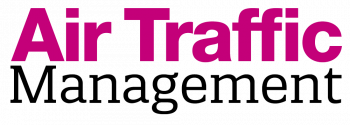An Airbus A320neo from Air Corsica inaugurated a new procedure at Ajaccio airport on the 4th of April 2022, aimed at increasing airport accessibility and reducing fuel consumption and CO2 emissions, while avoiding noise sensitive zones. Implemented on runway 20, this advanced type of Performance Based-Navigation (PBN) procedure called RNP AR (Required Navigation Performance with Authorization Required) allows certified crew and aircraft to approach and land from the north of Ajaccio by overflying a mountainous region, even in adverse meteorological conditions.
This instrument flight procedure uses GPS lateral guidance and improved barometric vertical guidance. The precision of the lateral guidance and the use of constant radius turns allow trajectories to follow narrow and winding valleys while ensuring maximum safety regarding terrain and obstacles. This trajectory was built upon an existing arrival limited to visual conditions. The new RNP AR path is encoded within the Flight Management System (FMS) of RNP AR certified aircraft and can be used by qualified crews when the meteorological conditions are as low as 2,800 meters of visibility and 630 feet of ceiling. In comparison, the minimum ceiling for using the opposite runway-end ILS 02 procedure is greater than 900 feet.
“We are very proud of having deployed this RNP AR procedure at Ajaccio, first of its kind within France mainland! The efficient partnership with the airline Air Corsica allowed to design this complex PBN procedure considering ATC and pilot constraints. This project is fully in line with our environmental strategy and will also reduce diversions. It provides a safe and shorter approach and an optimised descent profile allowing significant environmental gains.” Florian Guillermet, DSNA CEO, said.
Indeed, from DSNA’s noise impact study, the number of people overflown will decrease by 20,000 inhabitants in favor of the RNP AR procedure. In addition, for north arrivals the track miles gain is about 33 NM in favor of the RNP AR procedure compared to the ILS procedure on runway 02. It can even be 43 NM if the winds impose a landing on runway 20. Flight time can be reduced by around 10 minutes per approach. For Air Corsica, this RNP AR procedure will enhance flight efficiency and offer a better flight punctuality at arrival. Around 10 flights per year should avoid a diversion in case of bad weather conditions.
This type of procedure was developed and evaluated through the RNP Implementation Synchronised in Europe (RISE) project in the framework of research & innovation programme of the SESAR Joint Undertaking. RISE received industry-wide recognition, winning the Performance-Environment Award at the Single European Skies (SES) award ceremonies, held at the World ATM Congress in Madrid in 2017.
